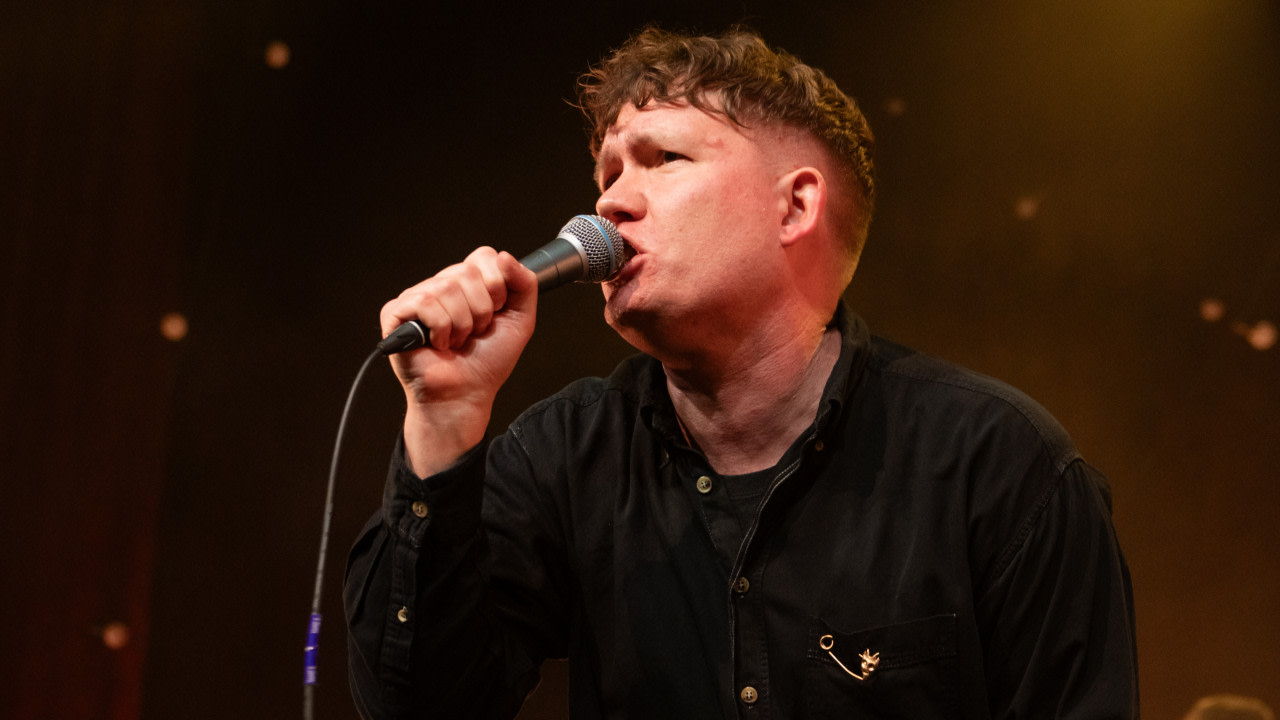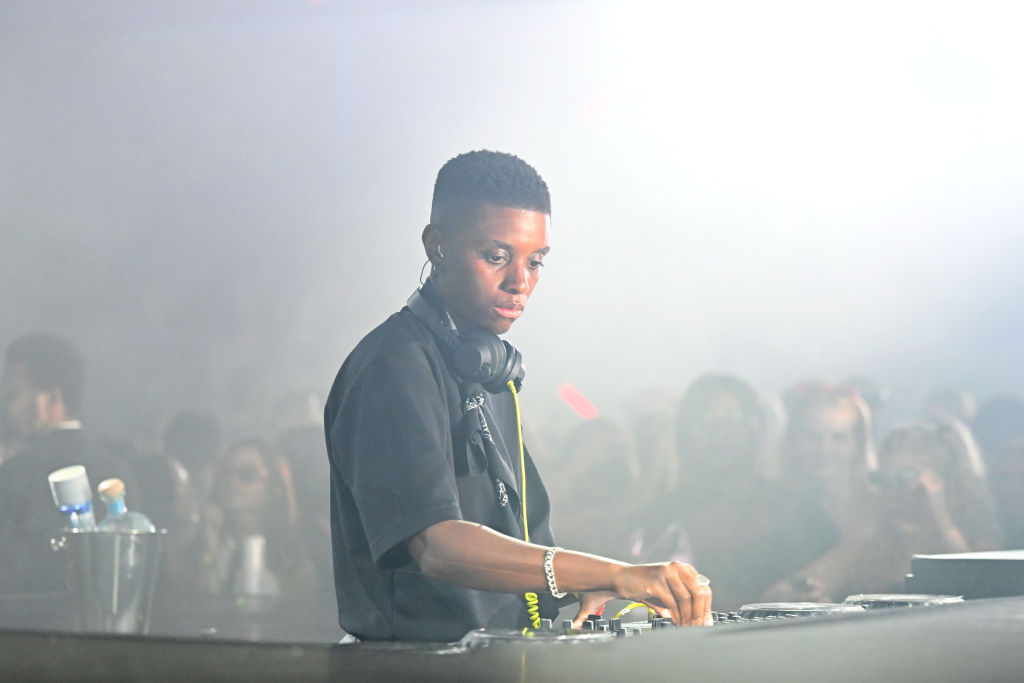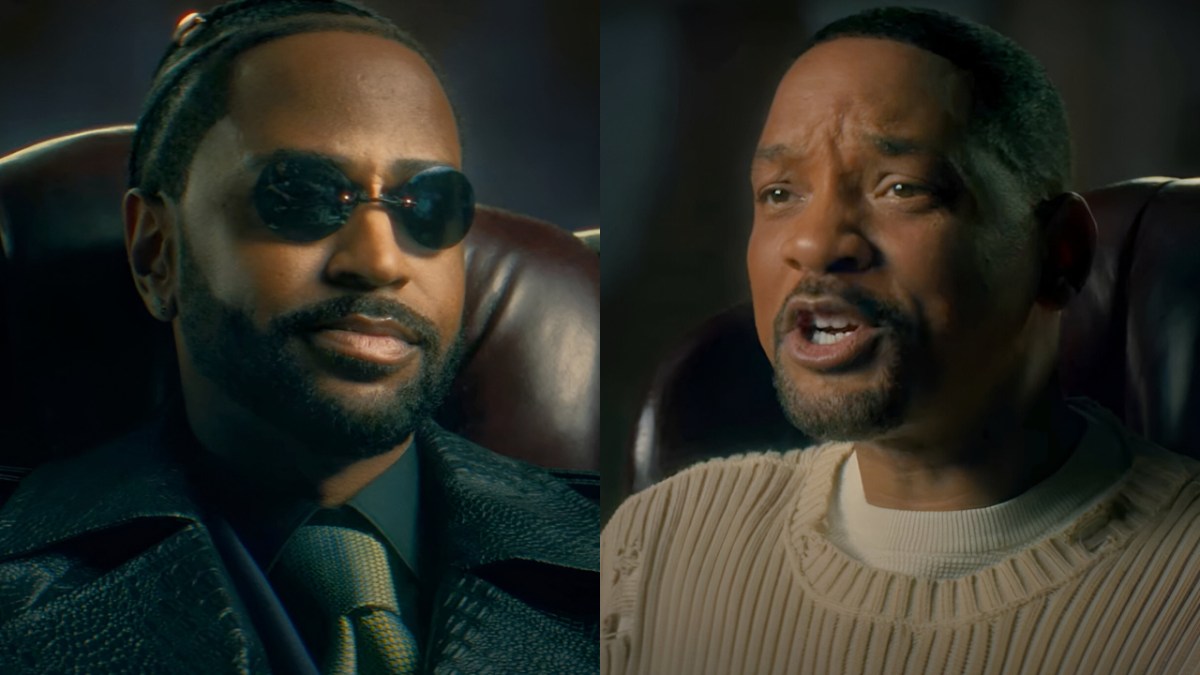“Live music isn’t a luxury”: Los Campesinos! and more are fighting for affordable shows

Table of Contents
Los Campesinos!, Sherelle, and the organizers of Toronto’s Pep Rally are placing community over profit when it comes to staging live events.

Gareth David of Los Campesinos! performs at Troxy on February 15, 2025 in London, England.
Photo by James Klug/Getty Images
In a March 6 post to the band’s website, Gareth David of Los Campesinos! broke down what it cost to stage a one-off show in Dublin, Ireland. Listed alongside the hiring of vans and hotels and other expenses the frontman revealed that the band set aside 5% of all tickets at a low-income rate of $10. In the end, only four out of the 520 tickets sold were bought at the discounted rate, but to David, having the low-income pricing option at all was symbolic of something that’s become increasingly lost in the current touring landscape. “I’m so glad 4 fans that might not have been able to afford the full rate ticket got to see us live,” he wrote. “More bands need to adopt this approach.”
It’s true that David and Los Campesinos!’s approach to ticketing has made them an outlier in a time when it feels more expensive than ever to buy a ticket to just about any live music event right now. Contrast them with another British band, Oasis, and you get a very different story. Tickets for their upcoming reunion tour surged from £148.50 ($195) to a huge £355.20 ($469) due to Ticketmaster’s dynamic pricing. (The debacle caused massive fan outrage, with the British government launching an investigation into what they described as an “incredibly depressing” state of affairs.) But even shows from similar-level artists as Los Campesinos! are pricey. Looking across the listings for upcoming concerts in New York City, and a ticket to see Black Country, New Road at the 575-capacity Bowery Ballroom is $35. Japanese Breakfast at Brooklyn Paramount is $78 while Lil Baby’s WHAM tour at Barclays Center is $300 if you want to be in the pit. Data shows that the average ticket price for the top 100 tours in 2024 rose to $132.30, up 9.1% from 2023, when it had risen 10.5% from 2022. That’s a 20.6% rise in just two years.
“I think it’s very clear that certain people within society are being priced out of live music,” David told The FADER in a follow-up interview. “That distraction from the slog of daily life can be vital. We used to just put people [that couldn’t afford to pay regular price] on the guestlist but we decided to formalize things a little, mainly because some people might not feel comfortable identifying themselves as being unemployed or low income.” Los Campesinos! have only ever had one venue refuse them to operate this ticketing policy — the 9:30 Club in Washington D.C. “And we simply said, ‘OK. We’ll play at a different venue.”
Amid rising costs that understandably make live events a lower priority, Los Campesinos! are leading the charge among a small cadre of artists prioritizing their fans as people, not just a means of boosting their bottom line.

Sherelle performs at an H&M&LONDON event during London Fashion Week on September 12, 2024
Photo by Samir Hussein/Getty Images for H&M
So why has going to see a show suddenly become so pricey? The industry has responded by all pointing fingers at each other, like a Spider-Man meme that costs $50 to look at. Inflation is the obvious starting point, which brings with it rising production costs. According to Forbes, the cost of staging a live event rose by around 30% in recent years. Experts also cite something they refer to as “funflation,” the idea that people are prepared to pay more for memorable experiences. While that might be true for Oasis reunions or a Taylor Swift Eras show, it’s not the case across the board. In 2024, The Black Keys and Jennifer Lopez were forced to cancel tours following poor sales and a backlash over ticket prices. (The Black Keys fired their management in the aftermath, claiming they were advised to play larger venues that necessitated the higher ticket prices.)
The sense that music fans are not just being squeezed but taken advantage of is increasingly palpable. Robert Smith of The Cure has long been a critic of Ticketmaster and dynamic pricing, calling it “a greedy scam” in 2023: “It’s a scam that would disappear if every artist said, ‘I don’t want that!’” Smith said. “It’s just driven by greed.” Neil Young and Sturgill Simpson have both since opted out of the option.
As far as David sees it, it’s “nice to put your money where your mouth is” and take a small hit that ensures the band’s shows are as accessible as possible. He points to DIY culture as an influence on his egalitarian mindset, as well as the veteran British musician Paul Heaton who tours arenas in Europe and never charges fans more than $45 for tickets. “All I can say about lower prices is: if you are prepared to step off the money train, it is doable,” Heaton said in a recent interview.
“I think it’s very clear that certain people within society are being priced out of live music. That distraction from the slog of daily life can be vital.” —Gareth David of Los Campesinos!
Someone else prepared to step off the money train is the U.K. DJ and producer Sherelle, whose debut album, With A Vengeance, dropped in April. To promote the release, she is staging “Sherelleland,” a U.K. tour where tickets cost just $20, a price she cheekily refers to as being for “bocats on a budget.”
Sherelle sees the benefit of having lower-cost tickets, which in turn sees her playing more intimate-sized venues, as a way of also protecting small-capacity venues.
“People need to have more of a community mindset rather than this kind of gamification of the music scene whereby we’re all trying to get to the biggest venues as quickly as possible,” she argues. “We’re losing a lot of small clubs at the moment but when people’s careers falter they always come crawling back to the underground being like, ‘I wanna take it back to the roots.’ Well what if the roots don’t exist anymore? What if they died because you followed the money?”
But there are also steep costs for artists like Sherelle who are trying to make their shows more financially accessible. “Sherelleland” will not be a money spinner and she admits that she will likely lose money on the tour, even with venues such as London’s Roundhouse reducing the cost-of-venue hire in support of her mission. She plans to shoulder the costs by taking higher-paid DJ gigs elsewhere, akin to an actor doing a blockbuster movie to fund their next indie venture.
Like David, Sherelle is worried about the existential threat of live music becoming a pastime only reserved for the wealthy. “Live music isn’t a luxury,” she says. “Everyone deserves a space to unwind and be free.”
“People need to have more of a community mindset rather than this kind of gamification of the music scene.” —Sherelle
That fear of live music becoming a gentrified experience is echoed by Chippy Nonstop and Karim Olen Ash, the organizers of the Toronto rave Pep Rally which centers and amplifies POC, queer artists, and women in their DJ bills and audiences. Their ticket policy allows attendees to Pay What You Can (PWYC) before 11:30 p.m. Speaking via Zoom, they point out that people’s money fluctuates, and that they hear from people who might come via PWYC one month only to return the following month at the regular price. In total they estimate that 25% of their tickets are sold at a discounted rate.
“I wish the onus wasn’t on queer, Black, and brown people to create these spaces but a pattern we see is that it’s often these people that can’t afford to say bye to that much money [offering more accessible options],” Olen Ash adds. “The reason why the party becomes the party is because of the community. So if you’re not doing it for them, what’s the point? There is always going to be people that can afford to pay. But we need that mix. We need that diversity in the crowd.”
For these musicians, the belief that live music must remain as accessible as possible outweighs the finances. And while, for now, the onus of that task remains on the shoulders of musicians, there appears to be a growing number of them willing to take up the burden. David mentions feeling immense pride that Jeff Rosenstock and Pup recently cited Los Camepsinos! as inspiring their decision to offer a select number of tickets on their upcoming co-headline tour at a low income rate.
For Sherelle, the work she put into her latest tour has also given her a renewed sense of purpose. “It made me feel a lot better about DJing because it’s not attached to this sense of capitalist greed,” she says. “There needs to be more conversations amongst people in positions of power. All I say to people is this, ‘Just do it and see how it goes.’”
If you liked the article, do not forget to share it with your friends. Follow us on Google News too, click on the star and choose us from your favorites.
If you want to read more Like this articles, you can visit our Social Media category.




